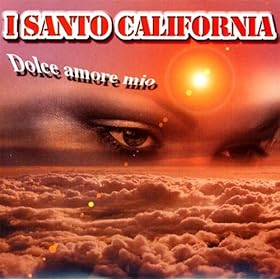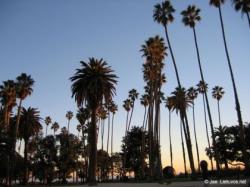The United States of America, you know, are a country very contradictory, in which reality can also opposed each other for better or worse to live with. After a short trip in the most populous U.S. state, California, you can draw very superficially a list of pros and cons that you encounter in a city such as, for example, San Francisco: Island "happy" pacifism, environmentalism and human rights ("minorities" gay in the first place) very unusual in the American context.
As soon as you leave the airport and it takes a car you immediately notice the huge traffic that clogged roads and highways, and that has nothing to envy to Milan or Rome. Indeed, the U.S. is the only nation in the world to have a number of cars per capita than the Italian one, and it shows.
However, the Californian authorities are trying to reduce their impact, in terms of CO2 emissions. Also in San Francisco, in fact, there are bike paths in most of the city, there are lanes for hybrid cars or simply more people on board, and all public transport (including the famous cable cars) are zero-emission, as they are all trams, trolleybuses or buses run on biofuels (but come back on these later).
Between the tram there are also some surprise ATM Milanese designed in 1928 by the American Peter Witt and purchased a few years ago, after their disposal in the municipality of Lombardy, the San Francisco Market Street Railway. Of course, the rebound effect, the rebound effect, is always lurking.
Especially in a country that continues to be, despite the environmental and economic crisis, completely oriented toward the consumer to business (broadly defined) and where you feel constantly under the influence of competitiveness that infects every aspect of life . The rebound effect is to lose the benefits that are obtained, for example, reducing emissions from cars on the road at the same time when the same number is steadily increasing.
In fact, the savings of a large number of hybrid cars has already been canceled by the consumption of hybrid cars that are not from off-road and in some cases are the size of embarrassing. Because "a dream in California? maybe because it's like a dream come true to see certain practices in the home of virtuous growth at all costs and hyper-consumerism, or because a true change (the famous "change we need") will remain for a while 'just a pretty dream? Perhaps for both reasons.
You probably are just reflections from European snob, but behind the facade there is a need for much more. Also because, in the Anglo-Saxon world, appearances often seem more important than the substance (and we're making the same). The fact that renewable energy in America are getting a (nother) huge business, however, should not be seen as necessarily a bad thing.
Perhaps it is a first step towards a slow and gradual realization of its limitations and its own priorities on the part of Americans. The fact is that the abnormal number of homeless that you see on the street can sometimes dream about a better future, if new technologies will create as Obama has provided tens of thousands of jobs.
Not that the homeless of tutt'America can become environmental engineers overnight, but start to guide the wasteful American mentality towards concepts or, indeed, technologies that teach people how useful, important and rewarding to be saving, not -waste, maybe even the frugal (and not the other way as it is now), could initiate a virtuous cycle that, over the years, allow the U.S.
to leverage what we have: beautiful landscapes, a wealth of resources and a people varied composed mostly of wonderful people, though often not very aware. Features that may remember another country: our. The U.S. and Italy are probably the countries of the industrialized world in which there is more work to do, if you really want to change.
They have an advantage: a political class that, at least in words, he wants this change. We even that. Despite Bush, Obama and their bombs, which received the Nobel Peace Prize, there are more people seeking to allocate more money to health care and less to the war. We hope that the millions of people who really have started to open his eyes soon have the upper hand.
The forecasts are not the best, but the hope is always the last to die. Environment, society, education, politics, energy, health care, "defense" ... There's a lot to do, both here and overseas. Especially if you want to deserve to be called "civilized countries". 


As soon as you leave the airport and it takes a car you immediately notice the huge traffic that clogged roads and highways, and that has nothing to envy to Milan or Rome. Indeed, the U.S. is the only nation in the world to have a number of cars per capita than the Italian one, and it shows.
However, the Californian authorities are trying to reduce their impact, in terms of CO2 emissions. Also in San Francisco, in fact, there are bike paths in most of the city, there are lanes for hybrid cars or simply more people on board, and all public transport (including the famous cable cars) are zero-emission, as they are all trams, trolleybuses or buses run on biofuels (but come back on these later).
Between the tram there are also some surprise ATM Milanese designed in 1928 by the American Peter Witt and purchased a few years ago, after their disposal in the municipality of Lombardy, the San Francisco Market Street Railway. Of course, the rebound effect, the rebound effect, is always lurking.
Especially in a country that continues to be, despite the environmental and economic crisis, completely oriented toward the consumer to business (broadly defined) and where you feel constantly under the influence of competitiveness that infects every aspect of life . The rebound effect is to lose the benefits that are obtained, for example, reducing emissions from cars on the road at the same time when the same number is steadily increasing.
In fact, the savings of a large number of hybrid cars has already been canceled by the consumption of hybrid cars that are not from off-road and in some cases are the size of embarrassing. Because "a dream in California? maybe because it's like a dream come true to see certain practices in the home of virtuous growth at all costs and hyper-consumerism, or because a true change (the famous "change we need") will remain for a while 'just a pretty dream? Perhaps for both reasons.
You probably are just reflections from European snob, but behind the facade there is a need for much more. Also because, in the Anglo-Saxon world, appearances often seem more important than the substance (and we're making the same). The fact that renewable energy in America are getting a (nother) huge business, however, should not be seen as necessarily a bad thing.
Perhaps it is a first step towards a slow and gradual realization of its limitations and its own priorities on the part of Americans. The fact is that the abnormal number of homeless that you see on the street can sometimes dream about a better future, if new technologies will create as Obama has provided tens of thousands of jobs.
Not that the homeless of tutt'America can become environmental engineers overnight, but start to guide the wasteful American mentality towards concepts or, indeed, technologies that teach people how useful, important and rewarding to be saving, not -waste, maybe even the frugal (and not the other way as it is now), could initiate a virtuous cycle that, over the years, allow the U.S.
to leverage what we have: beautiful landscapes, a wealth of resources and a people varied composed mostly of wonderful people, though often not very aware. Features that may remember another country: our. The U.S. and Italy are probably the countries of the industrialized world in which there is more work to do, if you really want to change.
They have an advantage: a political class that, at least in words, he wants this change. We even that. Despite Bush, Obama and their bombs, which received the Nobel Peace Prize, there are more people seeking to allocate more money to health care and less to the war. We hope that the millions of people who really have started to open his eyes soon have the upper hand.
The forecasts are not the best, but the hope is always the last to die. Environment, society, education, politics, energy, health care, "defense" ... There's a lot to do, both here and overseas. Especially if you want to deserve to be called "civilized countries".



No comments:
Post a Comment